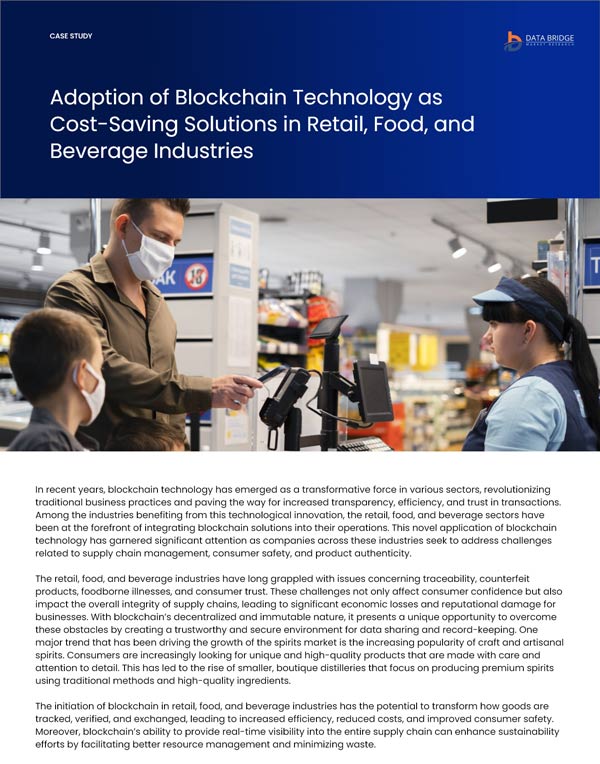In recent years, blockchain technology has emerged as a transformative force in various sectors, revolutionizing traditional business practices and paving the way for increased transparency, efficiency, and trust in transactions. Among the industries benefiting from this technological innovation, the retail, food, and beverage sectors have been at the forefront of integrating blockchain solutions into their operations. This novel application of blockchain technology has garnered significant attention as companies across these industries seek to address challenges related to supply chain management, consumer safety, and product authenticity.
Client Challenge
While blockchain technology offers numerous advantages for the retail, food, and beverage industries, several challenges and obstacles must be addressed during its implementation and research. Some of the key challenges faced by the client associated with "Retail, food, and beverage industries' blockchain research" include:
Cost and Complexity: Integrating blockchain technology into existing retail, food, and beverage supply chain systems can be costly and complex. The investment required for infrastructure, software development, and ongoing maintenance might deter some businesses, particularly smaller enterprises with limited resources
Scalability: Blockchain networks, particularly public blockchains such as Bitcoin and Ethereum, face scalability issues, limiting the number of transactions they can process efficiently. In high-volume industries such as retail and food, where thousands of transactions occur every minute, scalability becomes a significant concern
Interoperability: As various stakeholders participate in the supply chain, they might use different blockchain platforms or technologies, leading to interoperability challenges. Ensuring seamless communication and data exchange between disparate systems is crucial for the success of blockchain implementations
Data Privacy and Security: While blockchain technology offers inherent security through its cryptographic nature, ensuring the privacy of sensitive business and consumer data remains critical. Companies must carefully manage access controls and encryption techniques to prevent unauthorized access to sensitive information.
Regulatory Compliance: The retail, food, and beverage industries are subject to a wide range of regulations and standards, particularly concerning food safety, labeling, and origin verification. Blockchain implementations must comply with these regulations while still providing transparency and traceability.
User Adoption: Getting all parties involved in the supply chain to adopt and utilize the blockchain system can be challenging. Resistance to change, lack of understanding of the technology, and varying levels of technical expertise among stakeholders can impede successful adoption
Smart Contract Reliability: Smart contracts, which execute automatically based on predefined conditions, are a crucial aspect of many blockchain applications. Ensuring the reliability and security of smart contracts is essential to prevent errors or vulnerabilities that could lead to financial losses or disruptions in the supply chain
Environmental Impact: Some blockchain networks, especially those based on Proof-of-Work consensus mechanisms, consume significant amounts of energy. In environmentally-conscious industries such as food and beverage, this energy consumption may be a concern and require the exploration of more eco-friendly consensus mechanisms
Long-Term Viability: As blockchain technology is still relatively new and evolving rapidly, there might be uncertainties about its long-term viability and potential changes in its architecture or protocols. Businesses must carefully evaluate the risk and rewards of adopting a technology that is still developing



